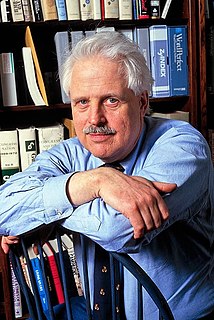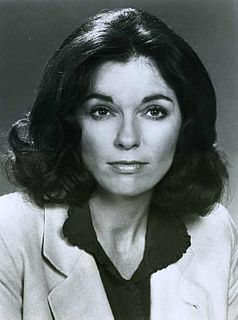A Quote by Terence McKenna
Not to know one's true identity is to be a mad, disensouled thing — a golem. And, indeed, this image, sick-eningly Orwellian, applies to the mass of human beings now living in the high-tech industrial democracies. Their authenticity lies in their ability to obey and follow mass style changes that are conveyed through the media. Immersed in junk food, trash media, and cryp-tofascist politics, they are condemned to toxic lives of low awareness. Sedated by the prescripted daily television fix, they are a living dead, lost to all but the act of consuming.
Quote Topics
Ability
Act
Authenticity
Awareness
Beings
Changes
Condemned
Consuming
Daily
Dead
Fix
Follow
Food
High
High-Tech
Human
Human Being
Human Beings
Identity
Image
Immersed
Indeed
Industrial
Junk
Junk Food
Know
Lies
Lives
Living
Lost
Low
Mad
Mass
Media
Now
Obey
Orwellian
Politics
Sick
Style
Tech
Television
Thing
Through
Toxic
Trash
True
True Identity
Related Quotes
The Second Wave Society is industrial and based on mass production, mass distribution, mass consumption, mass education, mass media, mass recreation, mass entertainment, and weapons of mass destruction. You combine those things with standardization, centralization, concentration, and synchronization, and you wind up with a style of organization we call bureaucracy.
The arrival of television established a mass-media order that dominated the last 50 years. This is a personal media revolution. The distinction between the old order and the new order is very important. Television delivered the world to our living room. In the old media, all we could do was press our noses against the glass and watch.
The media in the States can be quite self-reflective. When I lived in England, I was much more aware of the day-to-day politics that were happening. Living somewhere where the media involvement is greater and so omnipresent, you become pulled into it and, at the same time, because of that, politics changes and the way it's handled changes.
Thinking about free speech brought me to media regulation, as Americans access so much of their political and cultural speech through mass media. That led me to work on the FCC's media ownership rules beginning in 2005 to fight media consolidation, working with those at Georgetown's IPR, Media Access Project, Free Press, and others.
If the ruler wants to play the game by himself and follow secret policies, he must present a decoy to the masses. He cannot escape the mass; but he can draw between himself and that mass an invisible curtain, a screen, on which the mass will see projected the mirage of some politics, while the real politics are being made behind it.
Literacy is part of everyday social practice - it mediates all aspects of everyday life. Literacy is always part of something else - we are always doing something with it. Its what we choose to do with it that is important. There are a range of contemporary literacies available to us - while print literacy was the first mass media, it is now one of the mass media.
Advertising and the free society are closely connected. Advertising helps to make a free society remain so by increasing competition, and by helping to maintain the freedom of the mass media themselves. The free society is one where advertising and advertising agencies are likely to be in considerable demand, though it is true that even in a totally centralist society there would still be a need for organisations and people to have access to mass communication media.





































